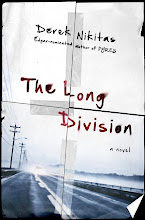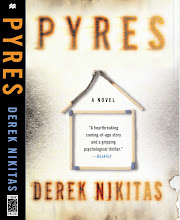Spoilers, obviously.
There’s been a bit of an internet uproar about last night’s
episode of Game of Thrones, “Unbowed, Unbent, Unbroken,” especially in regards
to the last few minutes after Sansa Stark and Ramsay Bolton’s wedding (though
there are also problems with the hasty treatment of the Dorne storyline and the
inexplicable re-emergence of Jaime’s fighting prowess).
Some viewers lament how the showrunners have deviated from
George R. R. Martin’s original novels, but now that the show has outpaced the
books in several story lines, deviations are to be expected. It’s a matter of
the quality of the deviations, and
whether they adhere to the spirit of the books, and, by extension, previous
seasons of the television show.
Other viewers lament the sexual brutality of the scene, and
this concern is far more important, far more worthy of discussion. Certainly
there are serious issues about agency and the treatment of women, of using rape
as a plot point.
I’m going to discuss storytelling technique, but I’ll admit
that what I have to say is trivial compared to these concerns. Hopefully,
though, I’ll get around to saying something useful about the ethics of this episode’s storytelling,
which are inextricably linked to the technique.
Martin’s A Song of Ice
and Fire universe is loaded with brutality and ugly turns of fate. His
storytelling tests the limits of how often our hopes about his characters can
be dashed before we lose all faith. Certainly, Martin has to keep a careful
balance between shocking us with setbacks for heroes and maintaining a sense of
hope. If we lose the latter, we’ll get the sense that there is no moral core to
this universe, and the structural integrity of his fantasy world would crumble.
If the fictional world is meaningless and arbitrary, we
disconnect.
Martin’s high-fantasy world is innovative because the moral
rules are not simple dark/light, good/evil. His work is a brilliant exploration
of moral paradoxes, of pulling the reader in several directions at once, of
defamilarizing our judgment. His shocking plot points may be brutal, but they’re
also deliciously ironic and paradoxical on a moral level. We hate what they do, but we love way they say.
His plot points—such as the loss of Jamie’s hand, which I
discuss in a previous
post—are full of resonating layers of meaning. Even when the death of the
Red Viper dashes our hope, we can see that it is a morally meaningful plot point. On the simplest level, we understand that
the Red Viper can’t win a decisive victory against the Mountain because Tyrion
has already previously won a trial-by-combat in the Eyrie using Bronn as his
champion.
He can’t do it again, if for no other reason than because
the fatalism in Martin’s world won’t allow for the same moral note to be struck
twice in exactly the same way. In a morally arbitrary world like our own real
world, the same damn thing can happen over and over. It’s exactly that kind of arbitrariness
that we resist in fiction.
So now we come to Ramsay’s rape of Sansa, with Theon in
attendance. This moment was never written by Martin. Like many other Game of Thrones moments, it’s brutal,
but unlike many other Game of Thrones moments, the brutality
is morally meaningless. Unlike, say, the Red Wedding, when we feel a
simultaneous dismay and paradoxical knowingness about Robb Starks’s hubris, we
feel only dismay for Sansa and her treatment by Ramsay.
I’ve been interested in Sansa’s character arc from the
start, as she’s evolved from a bright-eyed and rather snotty dreamer to a
victim to a shrewd mistress of her own fate. Or, at least, she’s been headed
toward that latter category. It’s been deliciously ironic that her progress as
a character has been largely based on the tutelage of Littlefinger, a villain
her mother deeply distrusted. Furthermore, it’s been wonderful to see (or at
least suspect) that Littlefinger’s perfect political calculations may be
endangered by his emotional attachment to a helpless young lady. He would be
her deliverance, and she would be his undoing. There’s a wonderful elegance in
that.
Sansa begins as a naïve young lady betrothed to a handsome
prince. She consents, but has no understanding or agency in her consent. The irony is that the prince is a brutal monster.
Once she realizes this fact, it’s too late, and we fear that she will be victimized
by him. Indeed, he tries to sexually victimize her, but at least she’s spared a
wedding night with him (and, furthermore, she’s allowed to have an unwilling hand
in Joffrey’s death, and she’s blamed for it, too).
Her next forced betrothal, this time to Tyrion, is the
perfect ironic contrast to the first. Tyrion is a “monster” on the outside, but
because he is a (complicatedly) moral creature at heart, she never has to
suffer nonconsensual sex with him. Her marriage to Tyrion is also the beginning
of her path to political shrewdness. She’s the only Stark left inside the
political arena, the only one still playing the “Game of Thrones.”
What, then, is Sansa’s marriage to Ramsay? In terms of moral
resonance, the story was headed in the right direction, even as it deviated
from Martin’s books. This time, Sansa is willingly undertaking this marriage, or
at least she thinks she is, and the fact that she doesn’t realize she’s being
manipulated by Littlefinger is a part of her character flaw. She’s only had to
deal with outwardly monstrous villains.
This time, Sansa is shrewd and in
control, and she’s out for vengeance with her black-dyed hair.
But then it all gets literally washed away. Sansa’s agency
is stolen from her, and she is raped. This plot point grossly and clumsily
reiterates her betrothal to Joffrey. Ramsey is the same kind of monster, and
Sansa is the same kind of victim, and the only difference this time is that
Sansa’s being put through the exact sexual torture Joffrey put her through. It
is merely intensified, not changed.
Furthermore, in the beginning of the story, Sansa’s
virginity was a political playing piece that other characters used. She has no
choice in whether Joffrey or Tyrion took her virginity, but the fact that they
did not meant something. It meant that she could develop as a character
long enough that her virginity became something she had control over. It could be her choice to keep it or use for
whatever emotional or political reasons she saw fit.
(I’m not suggesting it’s morally right that a girl’s
virginity be a political concern; I’m merely acknowledging that it very much is in Martin’s quasi-medieval world, and
in our world).
But her wedding night with Ramsay ruins all that. The redundancy
of Ramsey/Joffrey, and the cynical reversal of the deliverance Sansa earned
from Joffrey, effectively cancels out all of Sansa’s character progress and
retracts any agency she’s earned through the seasons. It’s dismay for the sake
of dismay, without any ironic resonance. We can feel nothing about it except
pity.
It didn’t have to be that way. What if, for example, Sansa
consensually lost her virginity to Littlefinger? The story seemed to be headed
in that direction. It would be a wonderfully paradoxical plot point because Sansa
would have agency and choice; she’d be deliberately abandoning the “honor” and attendant
naiveté of her position as a noblewoman. She’d be spitting in the face of the
false pageantry of it all.
At the same time, she’d be unwittingly giving in to the Baelish
charms that her mother pointedly resisted much of her life. It would be a
beautifully ironic win/lose. It would be awful and it would be subtly brutal,
because we know that Sansa wouldn’t really be consenting to anything, (she’s
too young, and still too innocent about monsters who seem to be charming) but
it would be meaningful as a point of
character progress for Sansa.
But Ramsey Bolton? He should’ve been a piece of cake for her.
The Ramsey/Sansa plot point might’ve worked if Sansa had maintained her agency
and carefully manipulated him without becoming a victim. Or it might have
worked if Ramsey himself had surprised us in some believable way (actually
trying to be respectful, now that he’s a lord, for example). I have a feeling
the showrunners have Sansa’s vengeance in mind for the long game, but they blew
the progress of that storyline in one terribly ill-conceived and morally
bankrupt moment.
Not to mention, when Sansa’s vengeance does comes, it’ll now
be too morally simplistic and inevitable.
Worst of all, they made Theon the focus of the scene, as if
this were Theon’s moment to save the
damsel. Nothing in the moral landscape of the story would suggest that Theon
would be of any use, or any resonant meaning in this moment. The storytelling is guilty of both moral redundancy
and moral bankruptcy. All we learn by focusing on Theon is that he’s still in
Ramsay’s thrall. We’ve already been made to understand that several times over,
and nothing changes as we pointlessly watch him watch.
Yes, it’s true that we haven’t yet seen the fall-out of this
specific plot point. Undoubtedly, there will be consequences for Ramsay and
Theon, but I’m skeptical that any subsequent turns will justify the
backtracking and morally empty brutality of this scene.


